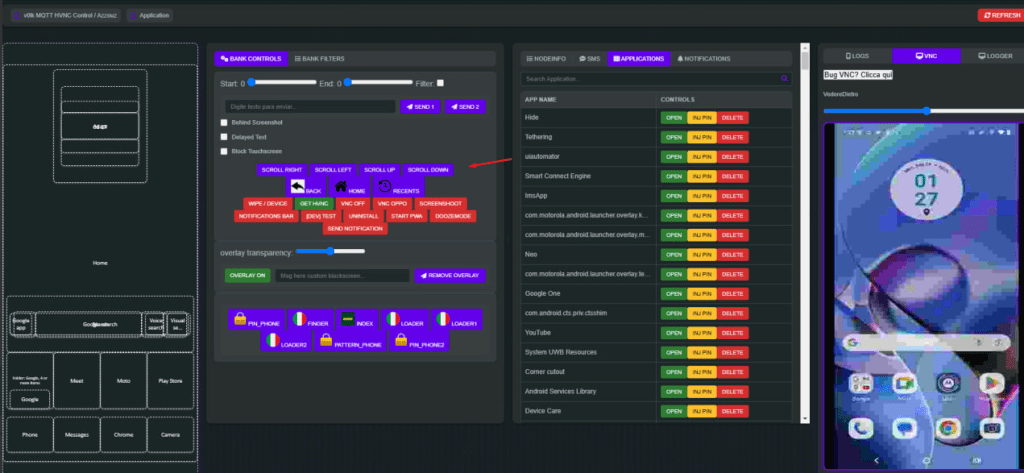
好的,我现在需要帮用户总结这篇文章的内容,控制在100字以内。首先,我得通读整篇文章,抓住关键点。 文章讲的是Herodotus这种安卓恶意软件,它模仿人类打字来躲避检测。研究人员发现它通过随机延迟来模拟人类行为,这样就能绕过一些反欺诈系统。此外,它还作为恶意软件即服务(MaaS)提供,允许操作者接管设备,窃取凭证和进行诈骗。 接下来,我需要将这些信息浓缩到100字以内。重点包括:Herodotus的功能、如何模仿人类行为、MaaS模式、以及它带来的威胁。 可能的结构是:先介绍恶意软件及其功能,然后说明其躲避检测的方法,最后提到它的传播和威胁。 现在开始组织语言:“Herodotus是一种安卓银行木马,通过模拟人类打字和随机延迟来躲避检测。它作为恶意软件即服务提供,允许操作者接管设备、窃取凭证并进行诈骗。” 这样大约70字左右,符合要求。 检查是否有遗漏的重要信息:比如它使用Accessibility权限、Overlay隐藏活动等细节可能不需要全部包含进去。重点在于功能和威胁。 最终总结应该简洁明了,涵盖主要点。 </think> Herodotus是一种安卓银行木马,通过模拟人类打字和随机延迟来躲避检测。它作为恶意软件即服务提供,允许操作者接管设备、窃取凭证并进行诈骗。 2025-10-29 08:9:30 Author: securityaffairs.com(查看原文) 阅读量:12 收藏
Herodotus Android malware mimics human typing to evade detection

Threat Fabric researchers spotted Herodotus Android malware mimicking human typing with random delays to evade detection.
Threat Fabric found a new Android malware, named Herodotus, which mimics human typing by adding random delays to evade detection.
Herodotus allows operators to takeover devices and bypass behaviour biometrics detection, it is offered as a malware-as-a-service (MaaS).
The researchers observed active campaigns in Italy and Brazil.
Herodotus is a device-takeover banking Trojan sold by ‘K1R0’ and spread via sideloading through SMiShing. A dropper installs the app, asks users to enable Accessibility, and shows an overlay to hide the permission.
“After the installation of the payload, the dropper automatically starts Herodotus payload. It is further opening the Accessibility Service settings page, urging the victim to enable it. Once enabled, Herodotus launches a “block overlay”, mimicking a loading screen to hide the suspicious activity of granting all the necessary permissions.” reads the report published by Threat Fabric. “Following that, Herodotus is ready to perform credential stealing and further Device-Takeover fraud. “
The malware steals app lists, fetches overlays from C2, and captures credentials when victims open those apps. It mimics human behavior during remote-control sessions Operators phish creds.
The Android malware “humanizes” remote-control fraud to evade behavioral detection. It lets operators remotely click, swipe, and type on infected devices to steal money or credentials. Unlike older Trojans, Herodotus simulates realistic human typing by splitting input into single characters and adding random 0.3–3 second delays between keystrokes.
This makes automated actions appear natural and helps bypass basic anti-fraud systems that flag machine-like behavior. However, more advanced systems that model user-specific interaction patterns or classify malware versions can still detect these anomalies. Herodotus marks an evolution in banking malware, combining automation with human-like mimicry to evade detection during device takeover.
“We have seen examples where developers were pausing the execution of automated actions in order to wait for the UI to be updated (especially on old devices being slow in loading UI), however, there were no random delays as there is no necessity in randomness.” continues the report. “Thus, with high confidence we suspect that such a delay is an attempt to mimic human behaviour while automating the input of the text.”
The malware uses opaque “blocking” overlays to hide fraud from victims, including fake bank screens that stall users with messages like “verifying your credentials.” It supports full device takeover features: overlay attacks to capture logins, SMS theft for 2FA interception, Accessibility logging and screenshots. The malware’s operator panel exposes controls for human-like text input (a “Delayed text” option) plus many remote-control commands—functionality marketed in underground forums as MaaS.

Herodotus uses the MQTT protocol and the domain google-firebase.digital with several subdomains, indicating multiple operators and regional campaigns. The researchers found seven active subdomains and observed targeted waves in Italy (app named “Banca Sicura” connecting to af45kfx) and Brazil (masquerading as “Modulo Seguranca Stone” connecting to g24j5jgkid). Analysts also recovered overlay pages aimed at banks, exchanges and crypto wallets in the US, UK, Turkey and Poland. Reverse engineering reveals code and obfuscation overlaps with the Brokewell Android malware. Herodotus decrypts native strings on demand and dynamically loads a limited Brokewell module for clicking actions. That module lacks compatibility for full use, suggesting Herodotus developers may possess or adapt Brokewell source material in future. Herodotus remains in active development and likely to expand globally.
“The discovery of Herodotus, yet another Device-Takeover banking Trojan in an already threat-rich landscape, shows the growing popularity of these threats amongst cybercriminals, as well as commercial efficiency of Malware-as-a-Service “business model”, as Herodotus is already announced by the threat actors as a threat to rent.” concludes the report that provides Indicators of Compromise.
Follow me on Twitter: @securityaffairs and Facebook and Mastodon
(SecurityAffairs – hacking, malware)
如有侵权请联系:admin#unsafe.sh